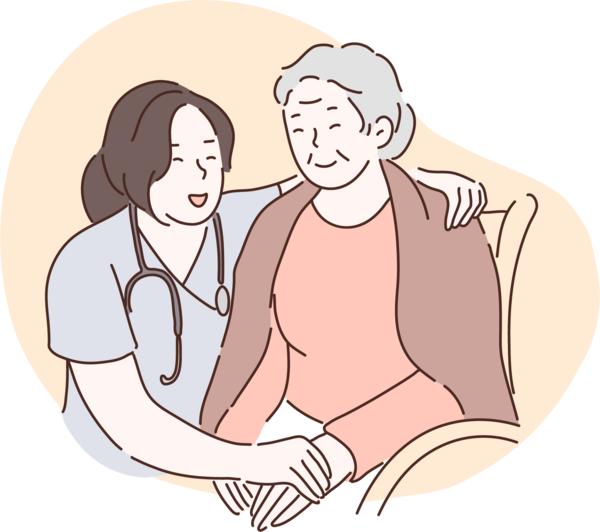
The importance and necessity of care as a social service are growing in line with social changes such as the aging population and prolonged COVID-19 pandemic. Care workers include caregivers who take care of the elderly, nursing workers who take care of patients, and disabled activity supporters. Although the importance and necessity of care are growing, the level of treatment of care workers is found to be very low. Their wages are fixed at the lowest level, and employment insecurity and manpower shortages are also severe. On February 15th, 200 care workers held a care worker conference in front of the Democratic Party of Korea and the People Power Party’s Company in Yeouido, Seoul, demanding "guarantee national responsibility for care services." There is an urgent need to improve the treatment of care workers.
According to the Korean Confederation of Trade Unions, the average monthly wage of care workers as of 2019 was only 1.528 million won, 57.3% of the average wage in Korea. In addition, the proportion of temporary workers among care workers was 33.1%, approximately twice the proportion of temporary workers among all employed people (17.8%). As such, a high proportion of care workers is temporary workers. Wages are also often fixed at the minimum wage due to the lack of a wage system in which wages increase with workers' experience level and continuous employment. For this reason, care labor is considered low-skilled and simple labor. Besides, most of the care facilities are privately run, not public. Care facilities are regarded as low-quality labor due to the lack of the wage system, and public care services are also being undermined by being left to the private market. To solve this problem, it is necessary to create public care facilities as social service sources. The government must directly hire care workers to alleviate their low wages and unstable employment problems. Specifically, each care worker has numerous difficulties. Typically, in the case of caregivers in elderly care facilities, the current manpower standard is 1 person in charge of 2.5 people. Considering three daily shifts and days off, one caregiver ends up taking charge of 10 elderly people. In response, the government announced that it would improve the manpower standard to 1 caregiver in charge of 2.1 people by 2025, but caregivers are insisting on the immediate manpower recruitment policy by the government. In addition, nursing workers are classified as special employment workers and are excluded from industrial accident insurance and employment insurance coverage. In situations where the Labor Standards Act is not applied, even nursing workers’ minimum level of labor rights is not guaranteed. The government should quickly prepare a policy to alleviate caregivers’ manpower shortage and come up with measures to ensure that nursing workers are covered by industrial accident and employment insurance. Furthermore, efforts should be made to ensure job security, living wages for all care workers, and improve their treatment.
At the care worker conference held in Yeouido, Seoul on February 15th, No Woo-jung, chairman of the care service labor union under the Korean Federation of Service Worker’s Union, said, "We are not women who do what anyone can do, but society sees us as such. […] Caregivers need self-esteem, but our society is forcing only dedication and sacrifice.” The government should quickly come up with policies to improve the treatment of care workers. Improving the treatment of care workers will eventually lead to improving the quality of medical care services for all citizens.

